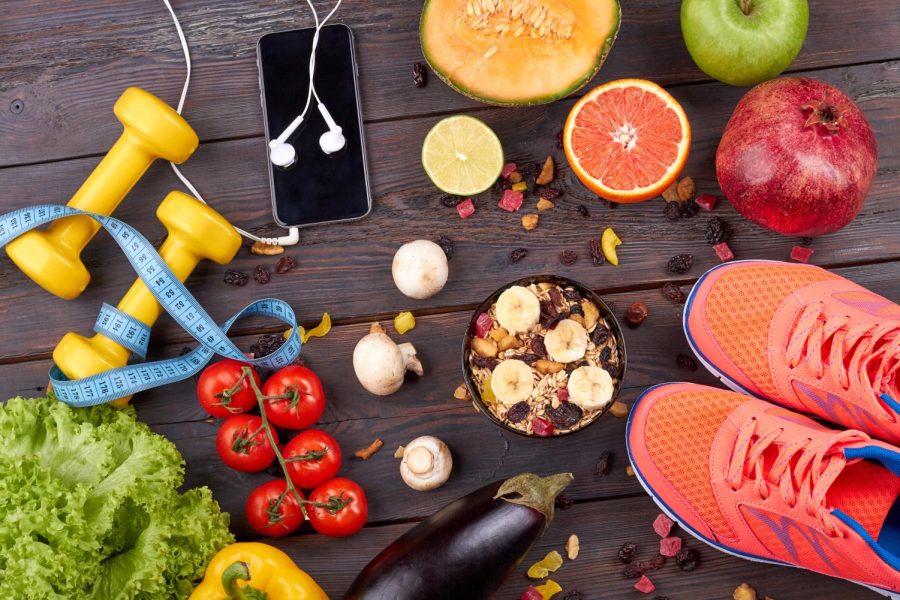Health Habits of Students at Whitman: Are Walt Whitman students taking proper care of themselves?
Good health is the foundation of our life. In order to be successful, to help others, to be the best people possible, we have to take care of ourselves first. Eat healthy, exercise, and sleep. These are foundational for maintaining enough energy to do what we love. It’s why I want to be a physician when I’m older—to help people live their best lives by taking care of these needs. It’s also why I conducted a survey on the health habits of students at Walt Whitman High School.
The survey consisted of a series of questions, where I asked my peers simple questions about their daily health habits. The students could choose from a variety of answer choices in a multiple-choice format and answer questions about their diet and water intake. According to the survey, the amount of water students drink daily varies greatly. The Mayo Clinic states that there is no exact amount recommended, as it varies based on exercise, the environment, and overall health. However, the US National Academies of Sciences, Engineering, and Medicine state that the average fluid intake for women is 11.5 cups for women and 15.5 cups for men. Out of 114 responses, only 18.4% drank six to eight cups of water a day and 16.7% drank more than eight cups a day. The largest percentage of students drank four to six cups of water, at 28.1%.
The results for diet were even more mixed. 43.9% said they ate a balanced diet, which is nearly half the amount of Whitman students, and 13.2% said they wanted to learn more about healthy eating. However, 32.5 % of students said they did not eat healthily, and 9.6% of students were unsure. Thankfully, most of the students responded that they ate two to three meals a day, and 63.2 % said they ate snacks, which means most students are nourishing themselves, and eating when hungry, which is very important and foundational for an intuitive style of eating. Click here if you want to learn more about intuitive eating.
I also asked students about their fruit and vegetable intake. Fruits and vegetables provide vital nutrients for our bodies. Antioxidants, fiber, vitamins, and minerals are all essential for our cells and organs to function. According to Harvard’s School of Public Health, antioxidants are chemicals used to combat free radicals in the body. Free radicals “are capable of damaging cells and genetic material.” And there are numerous other reasons for consuming enough fruits and vegetables to receive these vital nutrients. The CDC recommends that girls ages 14-18 eat a minimum daily amount of 1.5 cups of fruit and 2.5 cups of vegetables, and boys ages 14-18 eat a minimum of 2 cups of fruit and 3 cups of vegetables. However, from my survey I discovered that only 4.4 % of students surveyed ate more than 2 cups of fruit, only 6.1% ate two cups, and 17.5% ate 1.5 cups of fruit. These results illustrate that most students are not meeting their daily requirements for daily fruit intake. Yet, some students may not necessarily know exactly what a “cup” of fruit looks like (after all, it’s very difficult to visualize a cup of apples versus a cup of grapes), so this is important to take into account when looking at this data.
The results for vegetable intake were similar. Only 4.4% of students ate more than 2.5 cups of vegetables, 3.5% ate 2.5 cups of vegetables, and 10.5 % ate 2.5 cups of vegetables. That means the rest of the population ate fewer vegetables than the CDC’s recommended amount. Again, however, it is important to take into account that some students might not know exactly what a “cup” of broccoli or spinach looks like, so that may contribute to the high percentage of students not meeting the recommended intake.
So, how can we change this? How can we encourage more students to eat more vegetables, to drink more water, to eat more fruit? Well, it’s my hope that proper education will lead students in the right direction. Sometimes, a simple reminder is enough to remember those extra two glasses of water. As for healthy eating, the issue becomes a little more complex, but I think eating more vegetables or fruits is an easy enough diet modification, especially since many students at Whitman already eat a very balanced diet. Our own school cafeteria provides these fresh fruits and vegetables for free. So, next time you’re in the South Café, grab a salad or an orange with your sandwich and call it a day. It’s as simple as that.



